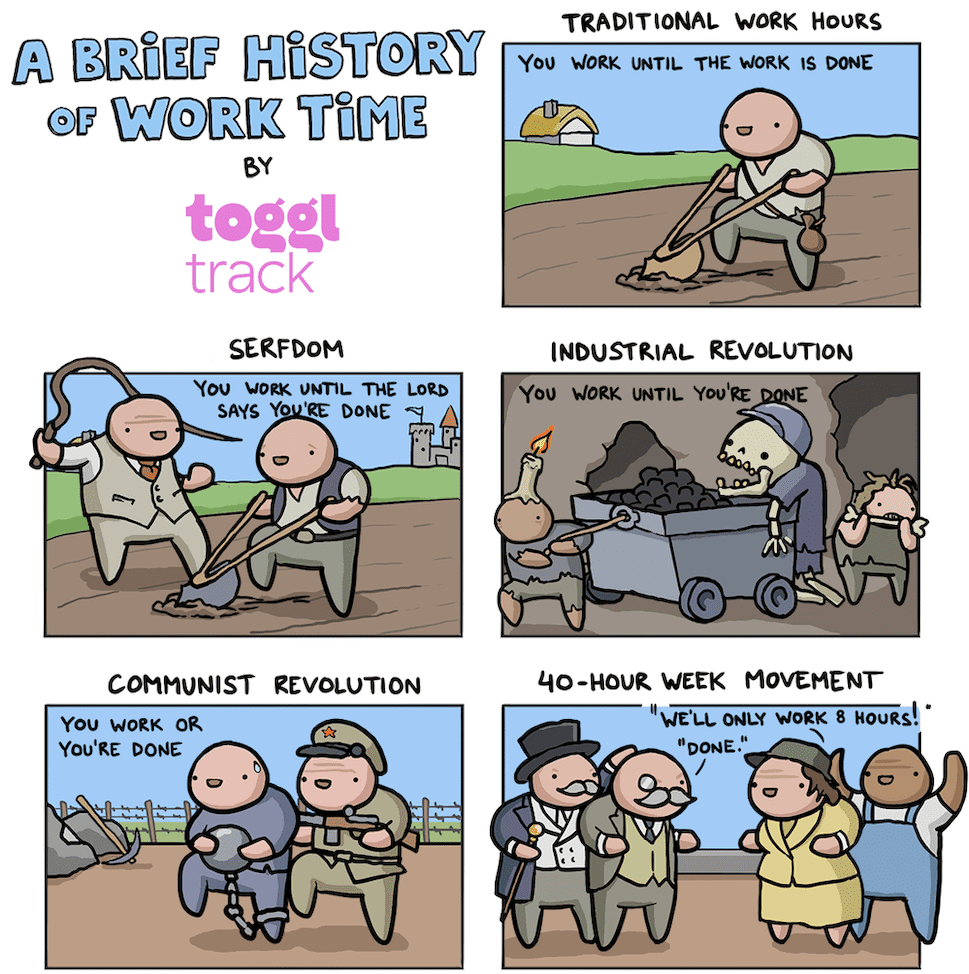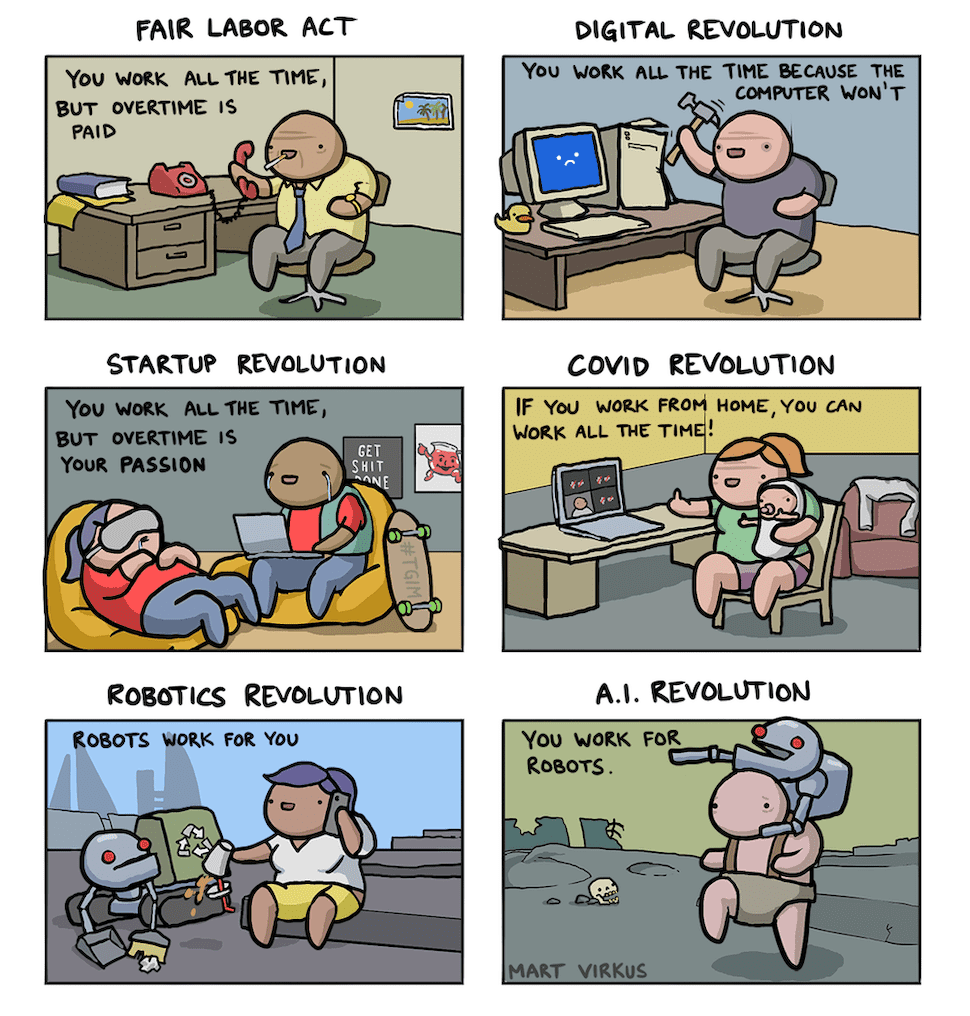When did resting go from a basic human right to laziness?


The Grind. The Hustle. The #TGIM.
There’s nothing wrong with loving your job, but there’s a difference between being professional and being busy for the sake of it.
Back in 2018, Reddit co-founder Alexis Ohanian talked about “hustle porn“– the fetishization of overwork that is particularly common in the tech world. It’s the idea that unless you are working all the time you’ll never be successful.
It’s an especially toxic mindset if it’s forced on employees who’d love nothing more than to enjoy their time off guilt free. I have far too many friends who have been bombarded with work tasks during their weekends even though they’ve specifically requested to be left alone.
Success might need sacrifices to some degree–but when the cucumber infusion water dispenser at your local WeWork is telling you “don’t stop when you’re tired–stop when you’re done,” we probably need to slow down because the inevitable next step is cocaine-laced avocado toast.
Humans have made dizzying progress over the past one hundred years, so it’s a little strange that we’re sneakily going back to the Industrial Revolution era exploitation where working 16 hours 6-days a week at a textile factory was a dope gig. If Robert Owen, an early industrialist and workers’ rights advocate, could see startuppers taking orders from a jar of cucumber water, he’d facepalm right through his skull.
It’s been a hundred years since the 1919 Hours of Work Convention which limited the working day to 8 hours. The people who fought for their right to rest saw the worst of what overwork can do, so it would be a bit awkward to give that freedom up voluntarily.
About Toggl
We make tools that help make work less soul-destroying.
Toggl (now Toggl Track) started out as a time tracker to keep tabs on where all those countless development hours were going. Soon we also added Toggl Plan, a beautifully simple project management tool. and Toggl Hire, a test-based candidate screening solution.
We quite like using these tools, and we think you will too.
Mart has a background in anthropology - a discipline which has turned people-watching into a science. He most enjoys working on projects that make you go from “that’s stupid” to “hmmm”.
![If Programming Languages Were Games [Comic]](images/programming-games-blog-cover_1-498x404.jpg)
![Learning Is Fun As A Freelancer* [Comic]](images/kristen-barnhart_comic-learning-is-fun-as-a-freelancer-preview-506x404.jpg)
![Working from Home: The Pros and Cons [Comic]](images/war-and-peas-working-from-home-pros-and-cons-toggl-comicblog-blog-cover-646x404.jpg)